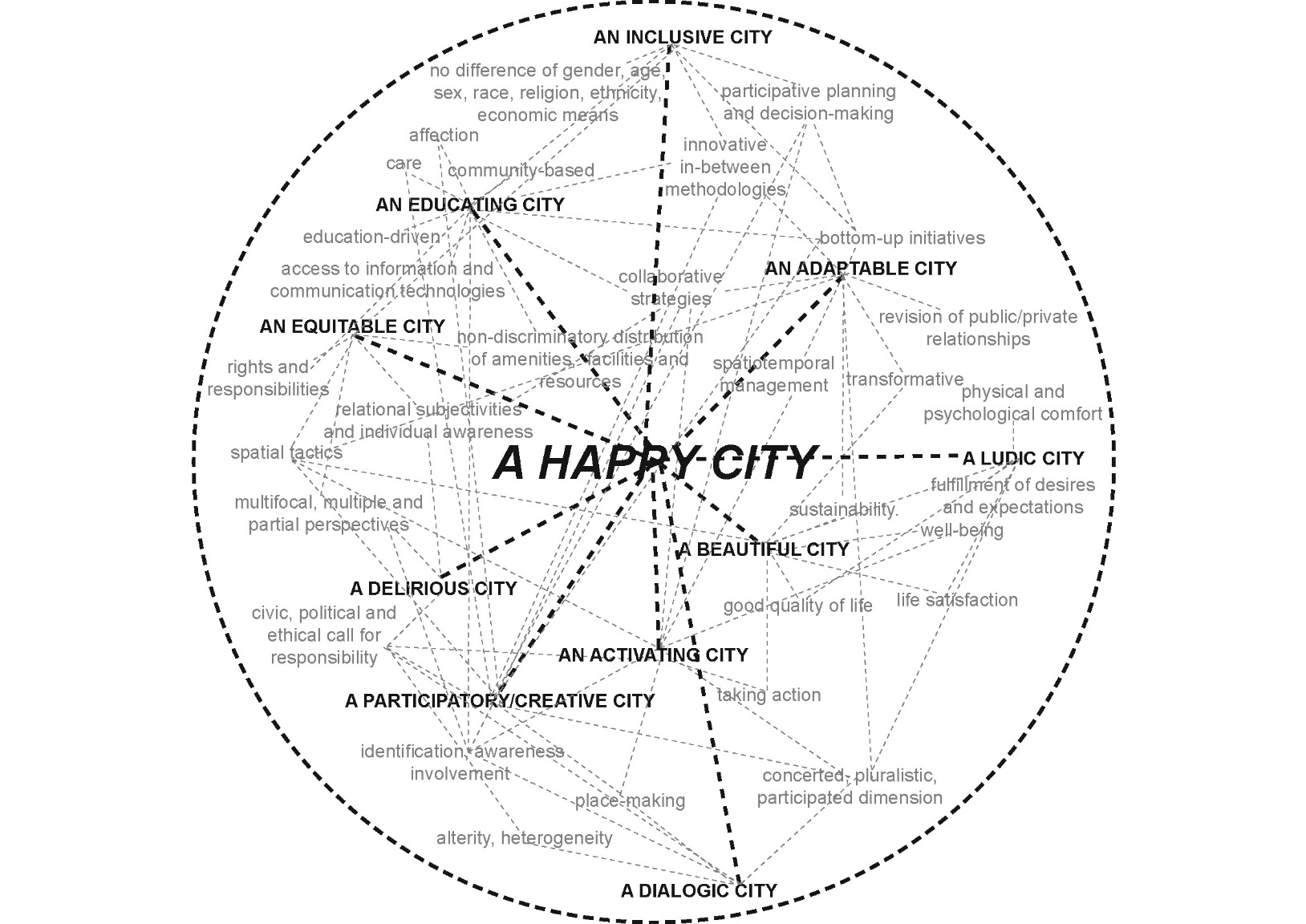Notes for a Decalogue of the happy city
Serafina Amoroso

Abstract
The happy city is the compelling link between happiness (intended both as a physical/spatial and psychological/neuroscientific issue) and urban planning and design. The happy city is a pedagogical project that needs a cross-disciplinary approach. This paper considers spatiality as a social construction that represents an essential element of the production of culture. A renewed attention towards the spatial dimensions of disciplines – the so-called “spatial turn” – can be traced back to the mid-1990s, but its pedagogical application has now to face new challenges induced by the current crisis, the behavioural changes resulting from the use of new technologies and the changing requirements of the labour market. It’s especially necessary to take into account the dimension of time. New types of educating/learning-scapes and new models of governance are required that may spread over time, be implemented and re-definable. This paper is an attempt to provide some notes and suggestions for a Decalogue of the happy city. They are by no means exhaustive - and, sometimes, they actually deal with issues that overlap each other - but they are a challenging collection of short definitions, synthetic guidelines and principles, descriptions of best practices and examples of innovative approaches and paradigm shifts, intended to pursue urban happiness.
Amoroso, S. “Notes for a Decalogue of the happy city.” Urbanistica INFORMAZIONI, no. 261 (2015): 10-14. http://www.urbanisticainformazioni.it/-261-special-issue-.html


